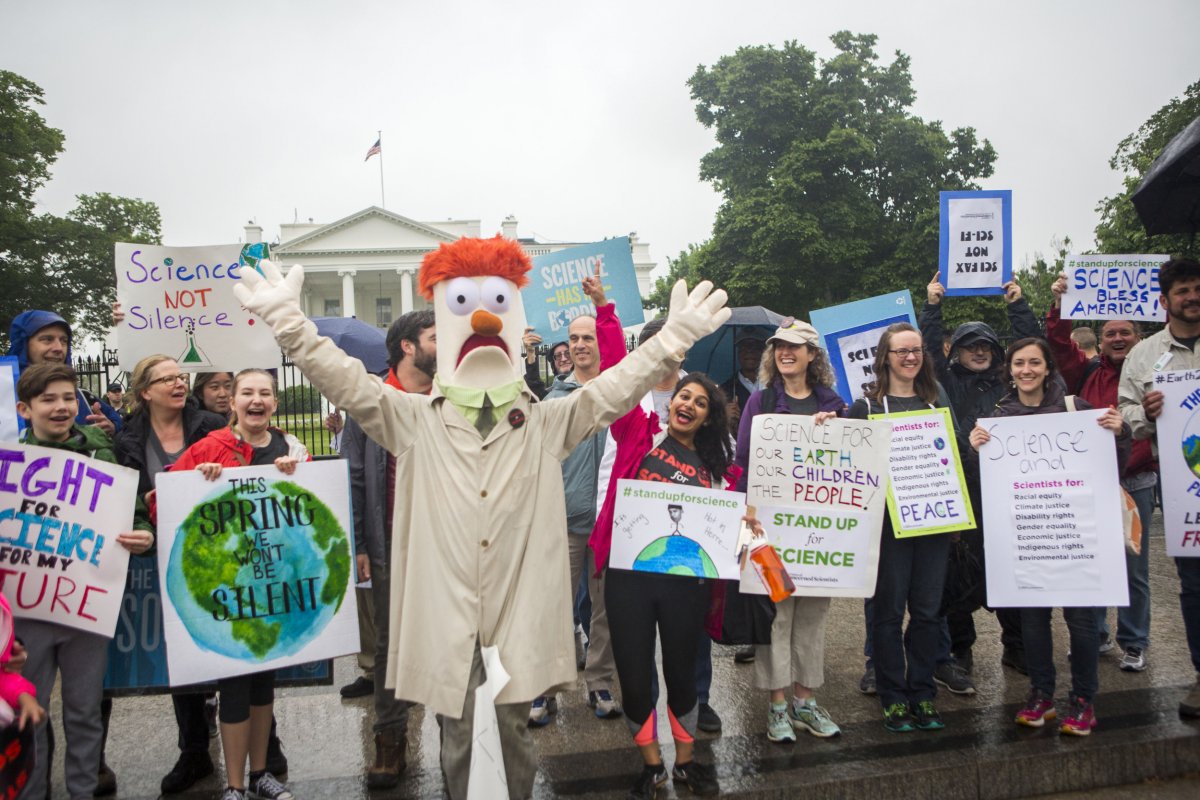The American public's trust in science and scientists remains stable (and relatively high) over decades—despite the apparent spread of conspiracy theories and various attempts made to remove scientists at a federal level.
This is according to a report published in Public Opinion Quarterly, which reveals around 40 percent of people who responded to the 2018 General Social Survey (GSS) reported having a good deal of confidence in scientific leaders. This is a number that has remained relatively stable since 1973 and is considered high in comparison to other professions, including journalists, judges and Congress.
"Over and over again, scientists are at the top of trustworthy professions," said Dominique Brossard, a professor of life sciences communication at the University of Wisconsin-Madison and senior author of the report, in a statement.
But as others have pointed out, it still remains "embarassingly low" and stands at less than 50 percent.
"If people really understood science, I would hope that their trust level would be closer to 80 or 90 percent," said Lee McIntyre, a research fellow at the Center for Philosophy and History of Science at Boston University, who was not involved in the research.
"It is good news to hear that Americans' trust in science has remained steady, despite the growth (or at least increased visibility) of science denial over the last few decades," McIntyre told Newsweek, but adds there has been "demonstrated growth" in certain areas of science denialism, including the Flat Earth and anti-vaccination movement.
"Perhaps the problem with science denial is not reflected in the absolute number of people who believe in falsities but in the outsized influence (both in terms of publicity and ability to make public policy) of those who hold denialist beliefs."
The study's authors say, these findings would seem to suggest that American's trust in science and scientists have not been majorly impacted by political events.
"Conspiracy theories have existed for as long as science has existed. Their proponents are louder now that social media helps them spread their rhetoric," Brossard told Newsweek. "The anti vaccination movement started as soon as vaccines became mainstream at the end of the 19th century."
"At the end of the day, everyone uses the science that fits their beliefs," she said—even anti-vaccination proponents. "Unfortunately, the science they use has been debunked."
What's more, she added, "many flat-earthers are convinced that human activity is causing global warming, or believe the theory of evolution, or in other words trust science for other topics."

The researchers did notice some variation in confidence depending on the location of the respondent—specifically, whether they lived in rural, urban or suburban America. The biggest supporters can be found in the suburbs, where close to half of people said they had a great deal of confidence in scientists. In contrast, only 30 percent of people from rural areas felt the same. Urban dwellers appear to be more fickle. Their trust has tended to fluctuate.
Despite the politicization of certain scientific topics, the study's authors did not notice a major difference between members of different parties in terms of confidence levels, suggesting fears that science might be becoming partisan are possibly overexaggerated. At least, as far as the polls are concerned.
There was a higher level of confidence reported by Democrats in the 2018 poll—around one in two answered in the affirmative—but the level reported by Republicans still hovered around the 40 percent mark. In other words, similar to the general population. The study's authors point out that confidence levels related to party affiliation tends to be less stable than other measures.
"Trust in science is about more than politics," said Brossard. "There's no war on science among the American public."
Uncommon Knowledge
Newsweek is committed to challenging conventional wisdom and finding connections in the search for common ground.
Newsweek is committed to challenging conventional wisdom and finding connections in the search for common ground.
About the writer
To read how Newsweek uses AI as a newsroom tool, Click here.








